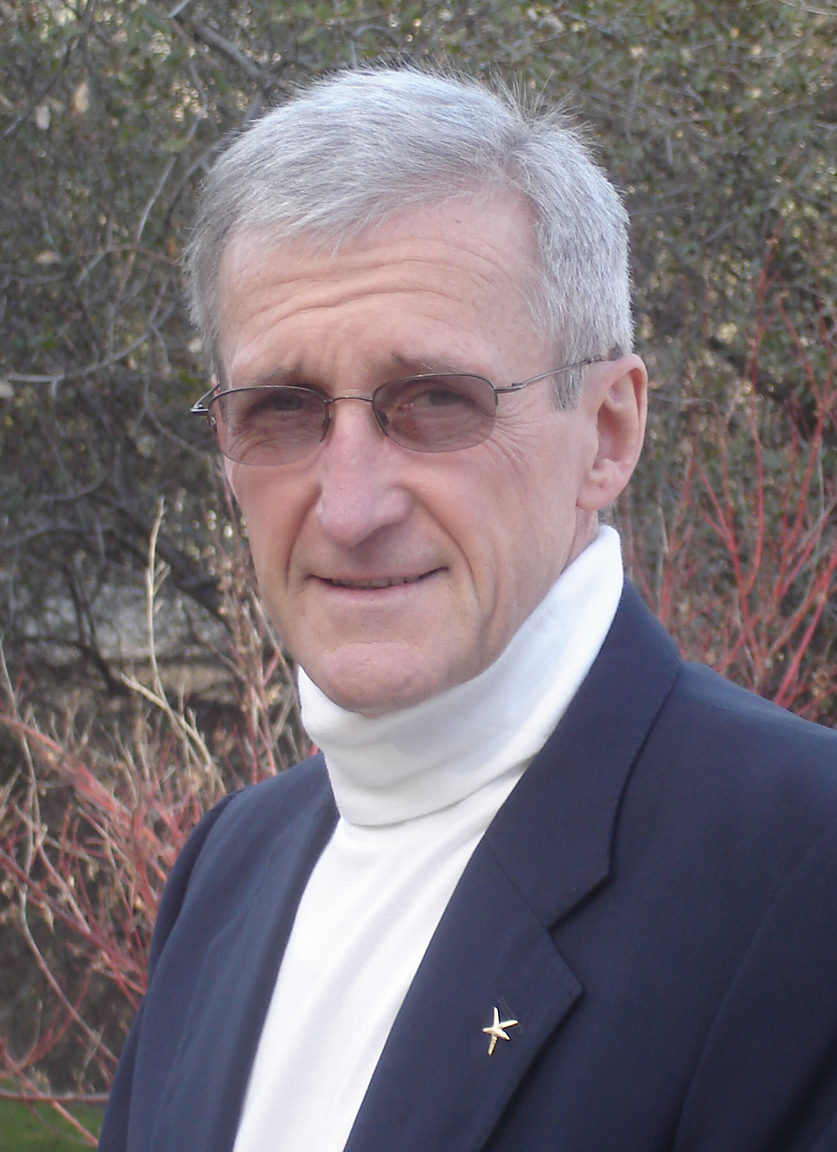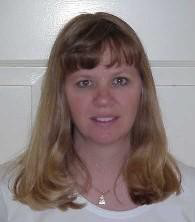 Chuck McIntyre of northern California, has consulted and worked in higher education planning, research, evaluation, finance and management since 1971. Until 1999, he worked as Director of Research and Analysis in a state office of higher education and has consulted with colleges across the U.S., in the United Kingdom and Canada since the early 1999s. His recent engagements have been in the areas of strategic and facilities planning, emphasizing enrollment forecasting, planning, and management – using computer simulation models, recently-released 2000 Census data, and other sources and tools. Chuck McIntyre of northern California, has consulted and worked in higher education planning, research, evaluation, finance and management since 1971. Until 1999, he worked as Director of Research and Analysis in a state office of higher education and has consulted with colleges across the U.S., in the United Kingdom and Canada since the early 1999s. His recent engagements have been in the areas of strategic and facilities planning, emphasizing enrollment forecasting, planning, and management – using computer simulation models, recently-released 2000 Census data, and other sources and tools.
ENROLLMENT FORECASTING, SIMULATION, AND MANAGEMENT Since the early 1990s, Chuck’s work has emphasized enrollment planning and management. In 1993, he developed an econometric model that is currently used in long-range enrollment forecasting for the capital planning at local districts in a state system. He conducted a study for the Maricopa Community Colleges in 1995 on the enrollment-impact of tuition and fees; results have been used by the district for long-range policymaking. Chuck then worked, in 1996, with Lincoln University on a computer model to simulate a variety of enrollment management initiatives in marketing, admissions, registration, and student retention, all designed to tie into budgeting models. Chuck also completed a 1997 study of Pima Community College’s past and future enrollment patterns for its use in planning. In Spring 1997, he was published in Jossey-Bass’ New Directions for Institutional Research, and has spoken on enrollment management at national conferences like the American Association for Community Colleges (SCUP), Association for Institutional Research (AIR), Society for Needs assessmentCollege and University Planning (SCUP), and the Consortium for Community College Development (CCCD). In Fall 1998, Chuck spoke at the European AIR in Spain about use of computer models to forecast enrollments and plan budgets. Also in 1998, he conducted an enrollment simulation and planning (ESP) study at Lansing Community College and, in 1999, he conducted ESP studies at Portland, Mt. Hood and Lane Community Colleges in Oregon and for the State Office of Michigan Community Colleges. In Fall 1999, AACC published Chuck’s book on Enrollment Simulation and Planning. Since then, Chuck has worked on ESP projects at colleges in Oregon, Michigan, Massachusetts, California, Washington, and Texas. STRATEGIC PLANNING Recent engagements by Chuck with Palm Desert and San Mateo (California) and Austin (Texas) Community Colleges have involved a form of strategic planning – learning-centered strategic planning – that emphasizes efforts by these institutions to concentrate in a variety of ways on student learning. Chuck spoke about this technique at a SCUP regional conference in 2002. Chuck’s work in college planning and evaluation spans nearly three decades, beginning in 1974 with an Exxon Education Foundation grant for research on the book Planning Colleges for the Community, published by Jossey-Bass. In 1978, he directed work, supported by a Vocational Education Act grant, on assessments of community educational needs; and in 1981, he was awarded a four-year Fund for Improvement of Postsecondary Education grant to develop new ways to tie college planning and evaluation to accreditation. Since then, Chuck helped develop several long-range plans for a state Board of Governors, has written a number of articles and monographs on college planning, and has directed numerous workshops and symposia on the topic using techniques such as Charrette, Delphi, Nominal Group Technique, and Total Quality Improvement. He has spoken frequently on planning at national and regional conferences like AACC, SCUP, AIR, Pacific Northwest Association for Institutional Research and Planning, Western and Southwestern Regional SCUP, Southeastern Association for Community College Research, California Community College Board of Governors, California AIR, Community College League of California, California Community College Trustees, and California Research and Planning Group, and at many local colleges. As Director of Research and Analysis, he was responsible for numerous state-level planning and evaluation projects, including environmental scanning and futures research projects, one of which was honored in 1996 with a Research White Paper grant from AACC and the Sloan Foundation, and published in Core Issues in Community Colleges (AACC, 1997). FACILITIES PLANNING During 2000, 2001 and 2002, Chuck conducted projects in long-range facilities planning for Mt. San Antonio (CA), Mt. Hood (OR), and Austin (TX) in preparation for capital financing bond elections. These projects involved computer modeling of facility needs, formulation of new space and utilization standards, and new kinds of classroom configurations. He currently is involved in a similar project for College of the Desert (CA) and has an article on the topic forthcoming in the Spring 2003 issue of the Journal of Applied Research in the Community College. Earlier, in 1990-91, Chuck designed and implemented a computer model to project 15-year facility needs for a state system of community colleges; the resulting Board of Governors’ Long-Range Capital Outlay Plan was used to plan and allocate capital outlays for nearly ten years. POLICY RESEARCH Over two decades, Chuck conducted and directed numerous policy research projects for a state office about community college transfer, tuition, fees and financial aid, student services and other topics. His article on transfer performance was published in Research in Higher Education in 1989. Other work includes policy research on such topics as the impact of fees on enrollment (1993), growth funding formulas (1996), and welfare reform (1997), among others. Also in 1997, Chuck completed four technical papers for the 2005 Task Force, a long-range planning effort about future college needs and funding, sponsored by a state Board of Governors and Chancellor. Chuck served on the Research Commission of the AACC between 1997 and 2000. COMPUTER MODELING For the past decade, Chuck also has engaged in many computer modeling projects, designing, developing and implementing planning and decision-support tools for colleges and universities. In 1989, he developed a computer model to forecast college faculty replacement, which was used in human resource planning and presented that year at SCUP. Between 1990 and 1995, Chuck directed a consortium of three dozen community colleges in the U.S., United Kingdom, and Canada in developing computer-aided planning (CAP) models. This work-involving model design, development, quarterly workshops with participants, and testing–was to produce robust and systematic computer simulation models to help colleges plan and make policy decisions. During the CAP project, Chuck held a 1993 planning symposium for staff from community colleges throughout England, Scotland, Wales and Ireland. Among colleges participating in the CAP project were Bilston in Birmingham (England), Lethbridge in Alberta (Canada), Kapiolani (Honolulu), and three-dozen other colleges from the mainland U.S. OTHER EXPERIENCE AND ACADEMIC TRAINING Earlier in his career, as Director of Analytical Studies with a state office of higher education, Chuck directed the design of the office’s first computer-based management information system and was responsible for the design and implementation of two financing systems by which the state office allocated funds to local districts. Chuck also has worked on projects assessing the economic impact of colleges, and in 2001 he helped AACC evaluate a new cost-benefit model for this purpose. Chuck’s academic training is in economics: PhD from University of California, MA from California State University; and in anthropology: BA from University of Colorado. He has taught undergraduate microeconomics and graduate higher education finance at the California State University. Prior to working in higher education, Chuck played professional baseball for the Milwaukee Braves organization. |
Specialties:
|
Tag Archives: student learning outcomes and assessments
Earl Bloor

Earl Bloor has a diverse background spanning higher education, government and industry, including twenty-five years as a chemistry instructor and administrator of a wide range of college-level programs, including arts, sciences, health occupations, technology, and trades programs. He has managed major instructional divisions in colleges in Canada, Massachusetts and California, and in Abu Dhabi (UAE). In government, he has worked with departments focusing on human resources development and apprenticeship training. For a two year period, he coordinated corporate development and training programs for a Middle Eastern oil operating company. With his wife, he publishes a regional magazine which focuses on sustainability issues. Earl has managed major curriculum development projects, such as the Competency Based Apprenticeship Training Program in Alberta (Canada) and the Adult Applied Academics Project in British Columbia (Canada). Earl was one of the first Facilitators/Trainers of the Instructional Skills Workshop Program, now a major element in instructional improvement programs in colleges and universities around the world, and one of its original Directors. Earl has been certified by Company of Experts.net as both an Appreciative Inquiry Facilitator and an Appreciative Inquiry Facilitator Training (AIFT©) Trainer. He is also a certified Team Coach. Earl’s experience has led him to understand that empathy is at the root of every successful human relationship. “My approach to supervision is relationship-based. I believe that every employee seeks to do the best job s/he can do. If there are factors preventing peak performance, these need to be identified in a non-threatening manner and addressed. This belief is at the base of the work I do to help organizations plan to achieve the goals that are most important to them.” Earl earned a Ph.D. in Chemistry from the University of Western Ontario (London, Canada) and conducted research at the University of Illinois and Simon Fraser University (Canada) before settling into a long and rewarding career based in community colleges around the world. |
Specialties:
|
Kay Weiss

Kay Weiss is a community college administrator and has extensive experience in professional and organizational development. In addition to teaching, Kay has served as a division dean, department chair, committee chair, and Standard Chair for Accreditation. She received the outstanding professor of the year award at her college in 1999 and, in 2000, the Golden Apple Award from the San Bernardino Education Roundtable. In 2006, was the recipient of the National Leadership Award presented by the National Council for Staff, Program and Organizational Development (NCSPOD.) Kay has been certified by Company of Experts.net as an Appreciative Inquiry Facilitator Trainer and an Instructional Skills Workshop Trainer. Kay has been an extremely active volunteer with NCSPOD, serving as Western Region Vice President, President Elect, President, and Past President. She currently serves as Certificate Program Liaison, working with newer practitioners and mentors on NCSPOD’s professional certificate process. She has served as facilitator for the New Practitioners Institute, the Summer Institute and the International Professional Developers Workshop for NCSPOD. She has also served as the lead facilitator for various Campus Great Teachers Format Seminars, including Great Staff Seminars, and the Great Online Teachers Seminar and has utilized both Appreciative Inquiry and the World Café Model to facilitate dialogue about topics “that matter most” in a variety of settings.. Kay is a long-time member of the California Community College Council for Staff and Organizational Development (4C/SD), the International Reading Association, and the California Reading Association. She holds a doctorate in educational leadership from the University of Southern California, a master of arts in education degree from California State Polytechnic University, Pomona, and a bachelor of science degree in general studies/education from the University of Southern California. |
Specialties:
|


